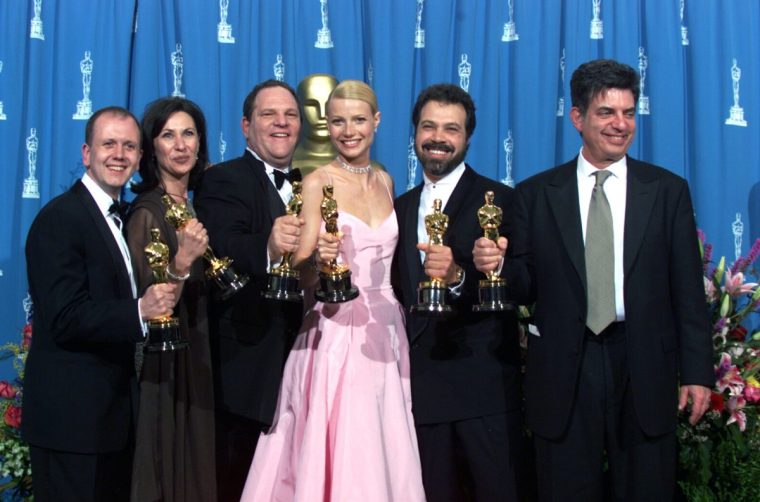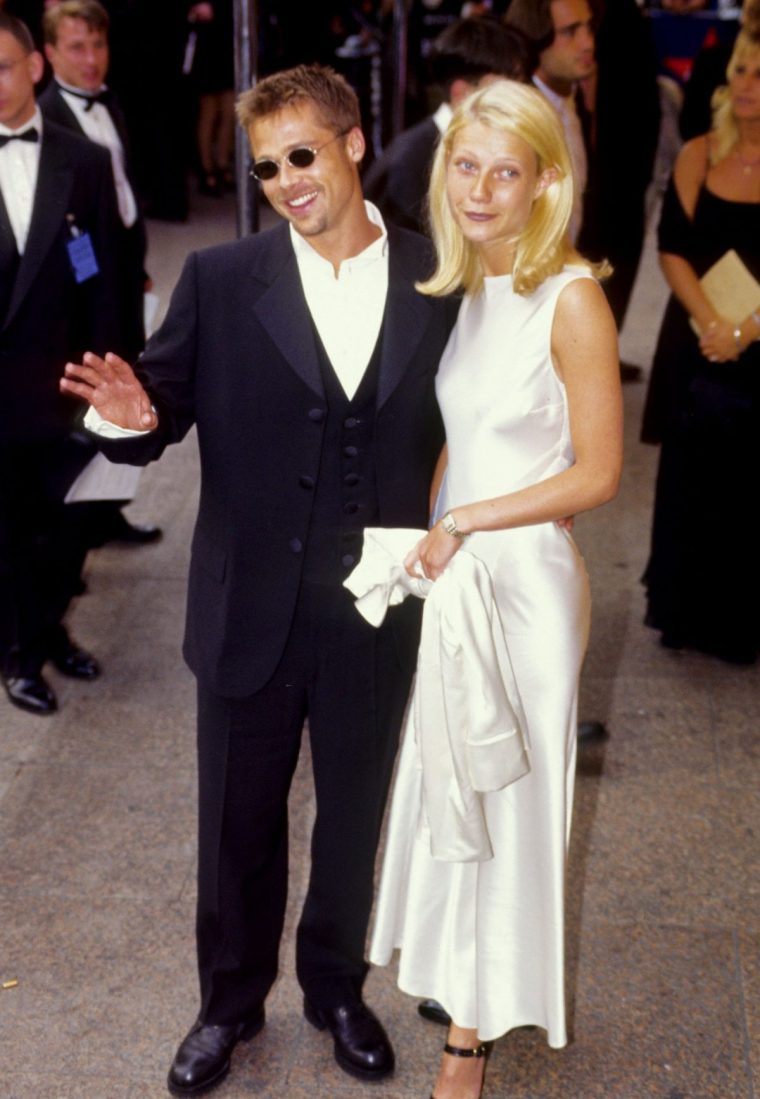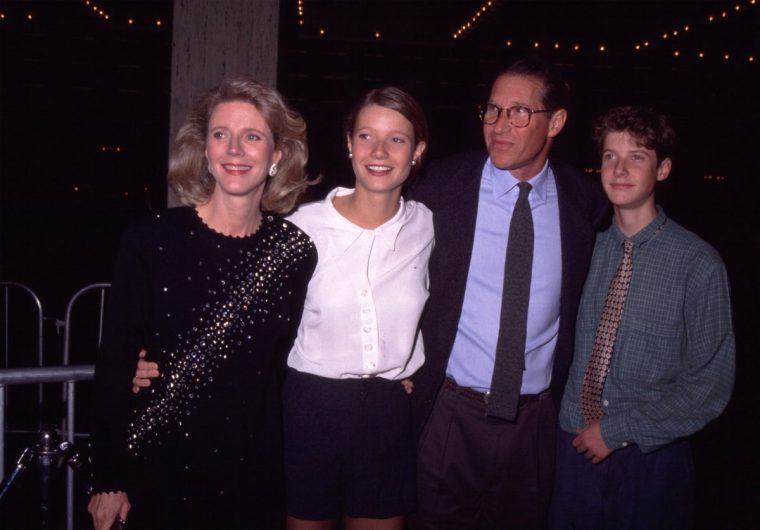The high priestess of wellness changed the world as we know it – whether we like it or not
When Gwyneth Paltrow doesn’t like someone – or when she turns against them, as she is wont to do whether it’s Madonna, Winona Ryder (whom she allegedly nicknamed Vagina Ryder) or a friend suffering from diarrhoea in her guest bedroom – she will apparently roll her eyes behind their back, put her finger in her mouth, and pretend to be sick.
Paltrow’s “classic vomit face”, as Amy Odell, author of the absorbing new Gwyneth: The Biography, puts it, is not out of character. Unusually for a poster girl for good taste, health and poise, discretion never appears to have been much of a priority.
This is a woman who graffitied erect penises in her high school library, who would apparently tell hair and make-up artists on film sets how much she enjoyed getting “teabagged” (look it up) by her boyfriend Ben Affleck; who bragged, the night she won an Oscar in 1999, “my daddy’s buying me the necklace” (a $160,000 diamond choker); who sneered at her ex-fiancé Brad Pitt for not knowing the difference between beluga and osetra caviar, allegedly called him “dumber than a sack of shit”, and upon hearing of his engagement to Jennifer Aniston, said he had “terrible taste in women”.

These join the canon of bizarre, unrelatable anecdotes about Paltrow, which of course includes her much-mocked claims that she would rather smoke crack than eat cheese from a can; that she cannot pretend to be someone who earns $25,000 a year; and that every pretty girl should experience what it’s like to be overweight (something she understands, after wearing a fat suit in 2001’s Shallow Hal).
Most recently, when testifying in an absurd 2023 trial over a skiing accident, she joked wryly that she (unharmed) was the victim, because she “lost half a day of skiing”. The episode was the subject of two musicals, and Etsy is still selling baseball caps emblazoned with her quote.
Being bitchy, uncouth and out of touch might harm someone else’s reputation. Not Gwyneth Paltrow, who since a blessed childhood (her Hollywood parents Bruce Paltrow and Blythe Danner chose Steven Spielberg to be her godfather) has possessed among her many innate talents a confidence that reduces everyone in her orbit to sycophants.
Even when she was very young and inexperienced, grown adults sensed her influence and jostled to get close to it. She also possesses an aloof, elegant, unreadable face – brows raised, unimpressed; mouth tight; eyes almost mocking – that dares the onlooker to challenge her.

Gwyneth: The Biography, if it was not already obvious, is unauthorised – the author spoke to more than 200 sources, but Paltrow refused to participate and has not commented on its claims, but did offer to fact-check it, which the author declined. It is a forensic examination of this icon of ridiculousness, who brought the world Apple and Moses, “conscious uncoupling” and vagina eggs, and of her pattern of turning her provocations into popular culture (is there anything remarkable about a baby Apple nowadays?).
Its first half charts Paltrow’s years as a magnetic but mediocre student at an Upper East Side prep school, the discovery of her astonishing acting talent (she really was extraordinary in the Oscar-winning Shakespeare in Love and has a staggering ability for accents); her ascent as the darling of Harvey Weinstein and Miramax who made her the star she always knew she’d be (she would later be a key voice in the MeToo movement, when she said that Weinstein had asked for a massage in a hotel room). It continues through her reign as fashion’s “It girl” dressed by Valentino and Calvin Klein, right up to her beloved father’s death from complications of throat cancer and her union with Coldplay’s Chris Martin shortly afterwards (her match with the “dorky” musician never made much sense to her friends).
It was only the 90s and early Noughties, and yet this indulgent era – where nobody winced at a nepo-baby (pedigree was, in fact, admired), movies still made money, Hollywood careers were created by a series of canny decisions and compromises (bargaining chips for Paltrow often included private jets), and magazine covers still had real currency – is long gone. Paltrow was one of the last stars in that age of media – and as she tired of acting (she gets bored quickly), she accidentally spawned a new one.

Which takes us to the book’s second half and to Paltrow’s second act, as the high priestess of wellness culture. Broken by her father’s death, she developed an interest in nutrition and alternative therapies, and would eventually combine these with her famously impeccable taste and create a newsletter named after his old nickname for her: Goop.
Those of us never tempted by a vaginal steam may find it easy to dismiss the impact of Goop, with its clean-eating diets, spurious “experts” and unsubstantiated and widely disproven claims about women’s health. But as it grew into an empire leveraging Paltrow’s image and curation and impossible lifestyle for profit, just as social media was exploding and traditional media declined, it made her the original influencer. Lifestyle, wellness, personal brands – all of this is now so commonplace we forget where they began.
We may not be able to name a film she has starred in since the 90s, nor attempted her recipe for a “detox” salad, nor knowingly copied her quiet-luxury wardrobe, but Paltrow’s influence has trickled down and is imprinted on every aspect of how we dress, eat and think about our health. A 22-year-old receptionist at a yoga studio once asked her, “have you done yoga before?” She responded: “You have this job because I’ve done yoga before.”

Reading Gwyneth: The Biography, quite aside from its account of the rocky fortunes of Goop, with its allegedly “toxic” working culture, slim margin for imperfection, and bizarre expectations (food editors would cook Paltrow’s personal meals), I was struck by how repeatedly she has been connected to the conversations that have dominated the culture of the last two decades – influencing, start-ups, medical misinformation, conspiracy theories, and privilege.
The book also convinced me that there is a god-given quality that makes someone a “star”, because since birth, Paltrow, now 52, who will define the turn of the millennium for all the wrong reasons, appears to have lived a life not just without facing consequences – but one in which consequences do not exist.
When her films get bad reviews, when her quack theories are debunked, when damage comes to those who follows her or when she faces backlash of any kind, the woman herself comes away beatific and unscathed. No matter that she opened Pandora’s box: Gwyneth Paltrow is a unique, otherwise extinct kind of celebrity – not just out of touch, but untouchable.
‘Gwyneth: The Biography’ by Amy Odell is published by Atlantic, £20
